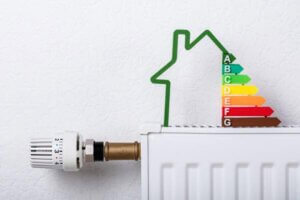
If you are looking to save money and at the same time keep your home warm and cozy, you need energy-efficient heating options. While there are many options available, some of the most popular energy-efficient heating solutions include heat pumps, high energy-efficient furnaces, solar heating systems, and smart thermostats. Here, we will look into each of these options in detail.
If you want to learn more or are looking for the best energy-efficient heating options for your St. Louis area home, Galmiche & Sons has you covered. We offer a variety of energy-efficient furnaces of every model and type. To learn more about our energy-efficient heating options or request a quote for your new HVAC system installation or replacement, contact us online or by phone at 314-993-1110.
Popular Energy-Efficient Heating Options
From saving energy and reducing heating bills to improving comfort, energy-efficient heating systems offer a number of benefits. Here are some of the most popular eco-friendly heating options we offer:
High-Efficiency Furnaces
High-efficiency furnaces generate heat by burning fuel in a combustion chamber. What differentiates them from traditional furnaces is they use advanced technology, such as a secondary heat exchanger, to extract heat from the fuel that would otherwise be wasted. This way energy is saved, making them more energy-efficient than traditional furnaces.
Heat Pumps
Traditional heating systems generate heat through combustion, which is a process of burning fuels with the help of air to produce heat. Heat pumps work differently. In a heat pump, heat is generated by transferring heat from the outside environment rather than combustion. This is why heat pumps are so energy-efficient. There are two main types of heat pumps: air-source heat pumps and ground source heat pumps.
Solar Heating
Solar heating is a newer technique used to heat modern homes. It uses the energy from the sun to heat your house. Solar heating can be done in two ways. First, by using solar panels which are fixed on the rooftops. These panels extract energy from the sun and distribute heat throughout the house. Second, by using building materials. Building materials with high thermal mass such as concrete and bricks absorb heat from the sunlight. The heat is stored in the thermal mass and once the temperatures drop, the heat is released from the materials into the room. This is how solar heating works.

Smart Thermostats
Smart thermostats are an important component that can be added to any heating system (new or existing) to improve energy efficiency. Smart thermostats can adjust temperatures based on your preferences. Once you set temperature settings, the smart thermostats learn your preferences and automatically adjust the temperature to your requirements. These devices can be controlled via smartphones and other smart devices.
How Do These Energy-Efficient Heating Options Save Money
While they each work a little differently, here’s how these heating options can save you money:
- These systems use less electricity and produce the same amount of heat as traditional heating systems do. This leads to a reduction in energy bills.
- Governments provide incentives such as rebates, tax credits, etc., when buying energy-efficient heating systems. This way homeowners can save money, making eco-friendly heating systems more affordable.
- New energy-efficient heating systems often require less maintenance, which allows homeowners to save money on repairs.
Contact Us Today For Energy-Efficient HVAC Solutions in St. Louis
If you are looking for energy-efficient heating systems to keep your home comfortable and warm all winter long, contact Galmiche & Sons. Call us at 314-993-1110 to learn more about our energy saving heating systems from our heating and air conditioning experts.









